
Nam June Paik, 73, Dies; Pioneer of Video Art Whose Work Broke Cultural Barriers
By ROBERTA SMITH
Published: January 31, 2006
Nam June Paik, an avant-garde composer, performer and artist widely considered the inventor of video art, died Sunday at his winter home in Miami Beach. He was 73 and also lived in Manhattan.
Mr. Paik suffered a stroke in 1996 and had been in declining health for some time, said his nephew, Ken Paik Hakuta, who manages his uncle's studio in New York.
Mr. Paik's career spanned half a century, three continents and several art mediums, ranging through music, theater and found-object art. He once built his own robot. But his chief means of expression was television, which he approached with a winning combination of visionary wildness, technological savvy and high entertainment values. His work could be kitschy, visually dazzling and profound, sometimes all at once, and was often irresistibly funny and high-spirited.
At his best, Mr. Paik exaggerated and subverted accepted notions about both the culture and the technology of television while immersing viewers in its visual beauty and exposing something deeply irrational at its center. He presciently coined the term "electronic superhighway" in 1974, grasping the essence of global communications and seeing the possibilities of technologies that were barely born. He usually did this while managing to be both palatable and subversive. In recent years, Mr. Paik's enormous American flags, made from dozens of sleek monitors whose synchronized patterns mixed everything from pinups to apple pie at high, almost subliminal velocity, could be found in museums and corporate lobbies.
Mr. Paik was affiliated in the 1960's with the anti-art movement Fluxus, and also deserves to be seen as an aesthetic innovator on a par with the choreographer Merce Cunningham and the composer John Cage. Yet in many ways he was simply the most Pop of the Pop artists. His work borrowed directly from the culture at large, reworked its most pervasive medium and gave back something that was both familiar and otherworldly.
He was a shy yet fearless man who combined manic productivity and incessant tinkering with Zen-like equanimity. A lifelong Buddhist, Mr. Paik never smoked or drank and also never drove a car. He always seemed amused by himself and his surroundings, which could be overwhelming: a writer once compared his New York studio to a television repair shop three months behind schedule.
Mr. Paik is survived by his wife, the video artist Shigeko Kubota.
Mr. Paik got to television by way of avant-garde music. He was born in 1932 in Seoul, Korea, into a wealthy manufacturing family. Growing up, he studied classical piano and musical composition and was drawn to 20th-century music; he once said it took him three years to find an Arnold Schoenberg record in Korea. In 1949, with the Korean War threatening, the family fled to Hong Kong, and then settled in Tokyo. Mr. Paik attended the University of Tokyo, earning a degree in aesthetics and the history of music in 1956 with a thesis on Schoenberg's work.
He then studied music at the University of Munich and the Academy of Music in Freiburg and threw himself into the avant-garde music scene swirling around Cologne. He also met John Cage, whose emphasis on chance and randomness dovetailed with Mr. Paik's sensibility.
Over the next few years, Mr. Paik arrived at an early version of performance art, combining cryptic musical elements — usually spliced audiotapes of music, screams, radio news and sound effects — with startling events. In an unusually Oedipal act during a 1960 performance in Cologne, Mr. Paik jumped from the stage and cut off Cage's necktie, an event that prompted George Maciunas, a founder of Fluxus, to invite Mr. Paik to join the movement. At the 1962 Fluxus International Festival for Very New Music in Wiesbaden, Germany, Mr. Paik performed "Zen for Head," which involved dipping his head, hair and hands in a mixture of ink and tomato juice and dragging them over a scroll-like sheet of paper to create a dark, jagged streak.
In 1963, seeking a visual equivalent for electronic music and inspired by Cage's performances on prepared pianos, Mr. Paik bought 13 used television sets in Cologne and reworked them until their screens jumped with strong optical patterns. In 1963, he exhibited the first art known to involve television sets at the Galerie Parnass in Wuppertal, Germany.
In 1965 he made his New York debut at the New School for Social Research: Charlotte Moorman, a cellist who became his longtime collaborator, played his "Cello Sonata No. 1 for Adults Only," performing bared to the waist. A similar work performed in 1967 at the Filmmakers Cinematheque in Manhattan resulted in the brief arrest of Ms. Moorman and Mr. Paik. Mr. Paik retaliated with his iconic "TV Bra for Living Sculpture," two tiny television screens that covered Ms. Moorman's breasts.
Mr. Paik bought one of the first portable video cameras on the market, in 1965, and the same year he exhibited the first installation involving a video recorder, at the Galeria Bonino in New York. Although he continued to perform, his interests shifted increasingly to the sculptural, technological and environmental possibilities of video.
In 1969, Mr. Paik started showing pieces using multiple monitors. He created bulky wood robotlike figures using old monitors and retrofitted consoles, and constructed archways, spirals and towers, including one 60-feet tall that used 1,003 monitors. By the 1980's he was working with lasers, mixing colors and forms in space, without the silvery cathode-ray screen.
For his 2000 retrospective at the Guggenheim Museum, Mr. Paik arranged monitors faceup on the rotunda's floor, creating a pondlike effect of light and images. Overhead, one of the artist's most opulent laser pieces cascaded from the dome in lightninglike zigzags — an apt metaphor for a career that never stopped surging forward.
2006 Sundance winners announced!
Sundance 2006 has wrapped and here are a few delicious bits: For the first time in the Festival’s history, both the Grand Jury Prizes and Audience Awards for Documentary and Dramatic Competitions were presented to the same two films (meh) and our the very dear to SDoF's heart,
Iraq in Fragments won an unprecedented three awards. Congratulations, James Longley!
Grand Jury Prize & Audience Award: Documentary:
GOD GREW TIRED OF US directed by Christopher Quinn.
Grand Jury Prize & Audience Award: Dramatic:
QUINCEAÑERA, written and directed by Wash Westmoreland and Richard Glatzer.
World Cinema Jury Prize: Documentary:
IN THE PIT (Mexico), written and directed by Juan Carlos Rulfo.
World Cinema Jury Prize: Dramatic:
13 TZAMETI (France), written and directed by Géla Babluani.
World Cinema Audience Award: Documentary:
DE NADIE (Mexico)
World Cinema Audience Award: Dramatic:
NO. 2 (New Zealand), written and directed by Toa Fraser.
Documentary Directing Award: James Longley,
IRAQ IN FRAGMENTSDramatic Directing Award: Dito Montiel,
A GUIDE TO RECOGNIZING YOUR SAINTS
Excellence in Cinematography Award Documentary: James Longley for
IRAQ IN FRAGMENTS
Excellence in Cinematography Award Dramatic: Tom Richmond for
RIGHT AT YOUR DOORNew award this year:
Excellence in Editing Documentary: Billy McMillin, Fiona Otway and James Longley,
IRAQ IN FRAGMENTSWaldo Salt Screenwriting Award: Hilary Brougher
STEPHANIE DALEY
Documentary Special Jury Prize:
AMERICAN BLACKOUT, directed by Ian Inaba and
TV JUNKIE, directed by Michael Cain and Matt Radecki.
Dramatic Special Jury Prizes for Best Ensemble Performance:
A GUIDE TO RECOGNIZING YOUR SAINTS, directed by Dito Montiel and starring Robert Downey, Jr., Shia La Boeuf, Rosario Dawson, Chazz Palminteri, Dianne Wiest and Channing Tatum.
The Independent Vision:
IN BETWEEN DAYS directed by So Yong Kim and written by So Yong Kim and Bradley Rust Gray.
World Cinema Documentary Special Jury Prizes:
INTO GREAT SILENCE, written and directed by Philip Groening and
DEAR PYONGYANG, written and directed by Yonghi Yan.
World Cinema Dramatic Special Jury Prize:
EVE & THE FIRE HORSE, written and directed by Julia Kwan.
Shorts Jury presented the Jury Prize in Short Filmmaking:
BUGCRUSH, directed by
Carter Smith and to
THE WRAITH OF COBBLE HILL, directed by Adam Parrish King.
Jury Prize in International Short Filmmaking:
THE NATURAL ROUTE (Spain), directed by Alex Pastor.
Honorable Mentions in Short Filmmaking:
BEFORE DAWN (Hungary), directed by Bálint Kenyeres;
PREACHER WITH AN UNKNOWN GOD, directed by Rob Van Alkemade; and
UNDRESSING MY MOTHER (Ireland), directed by Ken Wardrop.
Sundance/NHK International Filmmakers Award: Patrice Toy,
THE SPRING RITUAL from
Europe; Fernando Eimbcke, LAKE TAHOE from Latin America; Cruz Angeles,
DON’T LET ME DROWN from the United States; and Kanji Nakajima,
THE CLONE RETURNS TO THE HOMELAND from Japan.
Alfred P. Sloan Prize:
THE HOUSE OF SAND, directed by Andrucha Waddington and written by Elena Soarez.
The 2006 Documentary Competition Jurors: Joe Bini, Zana Briski, Andrew Jarecki, Alexander Payne and Heather Rae.
The 2006 Dramatic Competition Jurors: Miguel Arteta, Terrence Howard, Alan Rudolph, Nancy Schreiber, and Audrey Wells.
The 2006 Sundance/NHK Jurors: Wim Wenders, Hector Babenco, Anthony Drazan, Marcos Bernstein, Fiona Mitchell, Joan Tewksberry, Toshio Endo, Yoshio Kakeo, and Shunichi Nagasaki.
The 2006 World Cinema Documentary Competition Jurors: Kate Amend, Jean-Xavier de Lestrade and Rachel Perkins.
The 2006 World Cinema Dramatic Competition Jurors: Irene Bignardi, Lu Chuan and Thomas Vinterberg.
The 2006 Shorts Jurors: Georgia Lee, Sydney Neter and John Vanco.
The 2006 Alfred P. Sloan Selection Committee: John Underkoffler, Greg Harrison, Lynn Hershman Leeson, Dr. Martha Farah and Dr. Antonio Damasio.
See also: indiewire's
A Look Back: Sundance Film Festival Jury and Audience Winners 1985 - present
Alyson Hannigan in fat suit

Alyson "
I'll shake those Buffy nerds yet" Hannigan dons a fatsuit for the heinously unfunny-looking
Date Movie. Let me to be the first to say, "fuck.you.bitch".
Related reading: Alex Jackson
reports on
Thin at Sundance. Guaranteed to be the angriest review of a documentary on anorexia you've ever read. Sounds like someone couldn't score Paris Hilton's phone number.
Documentary filmmakers who would rather be masturbating
A roundup on some our favorite filmmakers who really, really, really love themselves.
Alan Berliner, who popularized the movie-about-people-with-the-same-name-as-me concept with The Sweetest Sound, now has a doc about his lifelong "battle" with insomnia called Wide Awake.
Wide Awake is not a treatise on the scientific underpinnings of insomnia, it is about one subject: Berliner. A neurotic, hyperactive New Yorker in his late 40s, Berliner admits that he worries about almost everything and is incapable of shutting his mind off to sleep. So he stays up until the wee hours clipping newspaper articles, editing his movies and meticulously organizing shelves of color-coded boxes full of things like found family albums and every photograph that has ever been taken of him.
Ross McElwee has a 5-disc dvd collection out and is currently a professor of Visual and Environmental Studies at Harvard University.
Q: You refer to "the filmmaker." Do you separate yourself from the Ross persona in the film?
McElwee: It depends on who I'm talking to. I don't know, sometimes in interviews it's a little bit easier for me to do that because although that is Ross up there on the screen, it's not entirely me. And it's a little bit easier for me to talk about the filmmaker character protagonist as he exists in these autobiographical films that I make. But if you were talking to me as a filmmaker and about my career, for instance, or my family, it's a different... I don't talk about myself in the third person. [laughter] I'm not that deranged! When I go to pick up my dry cleaning I definitely talk in the first person singular.
Michael Moore is currently working on two films: Sicko an examination of America's healthcare system and a sequel to Fahrenheit 9/11 set to release in 2007. The Guardian reports on some of Public Relations precautions already being put into place.
At least six of America's largest pharmaceutical firms have issued internal notices to their workforces warning them to be on the lookout for "a scruffy guy in a baseball cap" who asks too many questions.
...
[PR Rep Rachel] Bloom said Moore had been spotted at all six of her business centres nationwide. "Michael Moore is becoming an urban legend."
Danny Schechter, director of Weapons of Mass Deception, is currently serving as the Executive Editor of Media Channel and spends a lot of time downloading music.
Morgan Spurlock is currently producing/directing his second feature-documentary The Republican War on Science. He's also working on a pilot for the Comedy Central network and the second season of 30 Days will contine on Bravo later this year. He also does a bit of blogging:
It's Sunday morning and I awoke this morning with my entire groin area black and blue and in massive pain.
Jesus Christ v. Beyone Knowles -- the Frisco showdown

Reason #234873 why I love living in San Francisco, last night when I saw
Matchpoint (tremendous, check out Walter Chaw's
review) no one said a word when I hissed at the preview for Mel Gibson's astoundingly awful looking
Apocalypto (in fact, a few people joined in) and half the theater broke into cheers for the
Dream Girls teaser. My kind of town indeed.

"Imagine never seeing an Antonioni movie on the big screen"
This Sunday the New York Times asks "
Is Foreign Film the New Endangered Species?" examining the impact the explosion of "mini-major" productions, the boom in popularity for documentaries and the shorter theater to dvd window has on foreign films.
Increased selectivity has left dozens of smaller movies in the dust. For this year's Academy Awards, for example, a record 91 countries submitted entries to the foreign-language category; only seven have American distribution, the lowest number in years. By comparison, more than 20 entries for the 2003 awards were distributed here. ...
Foreign movies are generally regarded as more dependent on reviews and publicity than domestic ones, and Mark Urman, head of theatrical releasing for the art-house distributor ThinkFilm, blames the lack of media attention on dwindling audience interest. "Nobody's writing about them, because nobody cares, and nobody cares because they don't penetrate the culture," he said. "It's a vicious cycle."
Since
Film Light is apparently part of the problem and not the solution, this week I saw the incredibly moving documentary (leaning more towards the 'advocacy film' genre)
After Innocence. Directed by Jessica Sanders (and rumored to be on the short list for a Best Documentary Oscar nomination) the film follows a handful of men who have been exonerated with DNA evidence by
the Innocence Project. In one of the most compelling moments we meet a woman who has befriended the man she identified as her rapist who was exonerated (her real rapist who bore a striking resemblance to the exoneree was caught and convicted).
After Innocence (winner of the Sundance 2005 Special Jury Prize) examines how fragile our justice system is and poses real challeges to the way Americans think of crime, convicts, and rehabilitation. I don't mean to be glib, but it's truly a changing-film.

This week I also attended the
Media that Matters film festival which is a traveling (and online) collection of short films chosen by their jury from a submission pool of thousands. The films range in form, stock and content, but each piece has an incredibly incisive eye and distinct voice. We were on the tail-end of the tour but you can still watch all the films on their website. We recommend:
Battleground Minnesota and
the Luckiest Nut in the World.

Jake Gyllenhaal's new screensaver
 Marie Antoinette trailer
Marie Antoinette trailer (starring K. Dunst, directed by S. Coppola, you know this!) is up at imdb.com, and holy crap is it PUNK!
Release date is October 13th and the official site
here.
And no one had to barf half their bodyweight away!

The film adaptation of
the Devil Wears Prada has certainly gained some traction since the last time
Film Light googled it, and oh what delightful developments! Set to release June 30th Anne Hathaway, Meryl Streep, Giselle Bundchen, and Stanley Tucci star. Photos can be found
here,
here, and
here (and obviously I need to read
Media Bistro more often,
Radar folded? Tragic.)
the Golden Globes came and went, and boy did they smell
so here's the wrap up from the Golden Globe awards (which have a track record 80% accuracy in predicting the Oscars). If you were anything like Film Light playing the "take a shot everytime the camera cuts to a celebrity looking bored" you were probably pretty hammered by the time they got through the Supporting Actor categories.
FILMDrama:
Brokeback MountainMusical or Comedy:
Walk the LineDirector: Ang Lee,
Brokeback MountainActor, Drama: Philip Seymour Hoffman,
CapoteActress, Drama: Felicity Huffman,
TransamericaActor, Musical or Comedy: Joaquin Phoenix,
Walk The LineActress, Musical or Comedy: Reese Witherspoon,
Walk The LineSupporting Actress: Rachel Weisz,
The Constant GardenerSupporting Actor: George Clooney,
SyrianaScreenplay: Larry McMurtry, Diana Ossana;
Brokeback MountainForeign Language:
Paradise NowOriginal Score:
Memoirs of a Geisha, John Williams
Original Song: "A Love That Will Never Grow Old,"
Brokeback MountainTELEVISIONSeries, Drama:
LostSeries, Musical or Comedy:
Desperate HousewivesMiniseries or movie:
Empire Falls, HBO
Actress, Drama: Geena Davis,
Commander in ChiefActor, Drama: Hugh Laurie,
HouseActor, Series, Musical or Comedy: Steve Carell,
The OfficeActress, Series, Musical or Comedy: Mary-Louise Parker,
WeedsSupporting Actress, Series, Miniseries or Movie: Sandra Oh,
Grey's AnatomySupporting Actor, Series, Miniseries or Movie: Paul Newman,
Empire FallsActress in a Miniseries or Movie: S. Epatha Merkerson,
Lackawanna BluesActor in a Miniseries or Movie: Jonathan Rhys Meyers,
ElvisCecil B. DeMille Award: Anthony Hopkins
Highlights included: Steve Carrell's wife, S Epatha's "I'm 50!!" acceptance speech, Steve Carrell's mom,
Brokeback Mountain scribe Larry McMurtry thanking his typewriter for keeping him from "the cold embrace of the computer", George Clooney thanking Jack Abramhoff "for no reason really", Jack Abramoff's father
responding that he wants to spank George Clooney (furthering
Film Light's belief that conservative Republicans are just self-loathing homosexuals), Hugh Laurie thanking
House's script supervisor, Mary Louise Parker winning a Golden Globe while somewhere faraway in a dank alley Billy Crudup nurses a meth addiction.
Poland says hi
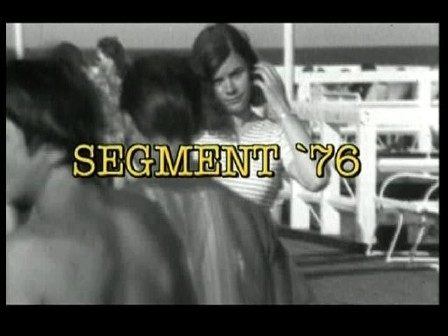
continuing the epic battle of Greencine vs. Netflix...
James Rocchi resigns as
Netflix's inhouse reviewer. Read him
wax apologetic on the Sundance film festival which has apparently been 'kicking him in the spine'.
Rocchi seems like an okay enough reviewer, but he'll never be a match to
Greencine's lethal
reviewing/
blogging duo
David Hudson &
Craig Phillips.
from Poland with love:
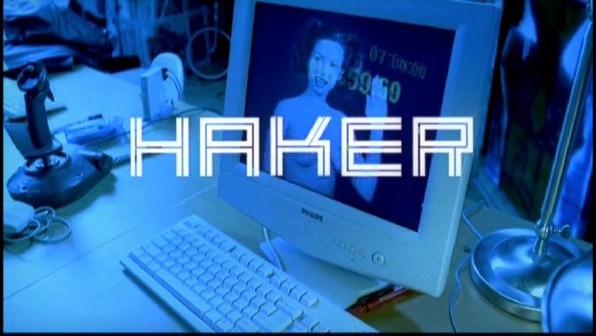
We never tire of those Jareckis.
The
Sundance Film Festival began today! You can follow the action
here,
here or even
here. But not really so much here. I'm pulling for
Chiwetel Ejiofor who stars in the much-buzzed about film
Kinky Boots, because I like to believe
Joss Whedon's is the touch of gold. All evidence to the
contrary.
And did everyone see Eugene Jarecki on the
Daily Show with Jon Stewart? His documentary
Why We Fight won the Grand Jury Prize at Sundance 2005 and is now available on
dvd. He was interviewed recently at
indiewire.
Whacky movie title of the day!
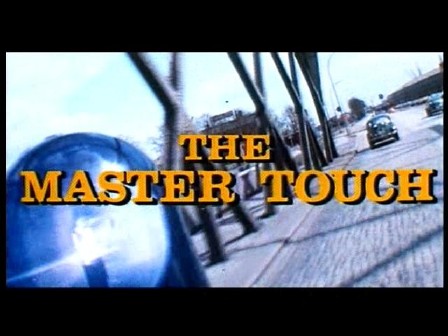
"Gay romance is easier to sell to the academy than a complex study of an Israeli assassin."
and the award for source least likely to be cited on
Film Light goes to:
Drudge Report!
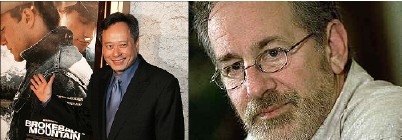
"where's my gift basket, sucka!"
STUDIO EXECS PREFER 'BROKEBACK' OVER 'MUNICH'; SPIELBERG SAID DISPLEASED
As the first wave of Oscar voting closes, a sibling rivalry between films at UNIVERSAL has turned sour.
The enthusiastic backing of BROKEBACK MOUNTAIN by UNIVERSAL chief Stacey Snider has come at the expense of MUNICH, a top source involved with the Steven Spielberg drama tells the DRUDGE REPORT.
"Stacey and her team believe BROKEBACK MOUNTAIN is their winner this year," claims a well-placed insider. "The movie has been spoiled, spoiled and spoiled again, with endless promotion and support. MUNICH, on the other hand, has been horribly neglected. Steven has been thrown in the backseat. It has been painful."
Tensions flared further with news that BROKEBACK MOUNTAIN passed MUNICH at the boxoffice in total receipts!
BROKEBACK has been far more profitable, costing only $14 million to make, while pulling in $34 million so far in domestic sales. While MUNICH cost $70 million, with a $33 million return.
Yeah well, Walter Chaw hated both
your asses.
Film Light asks: What about
Serenity's Oscar contention, UNIVERSAL??! Huh!
I leave you with this thought...
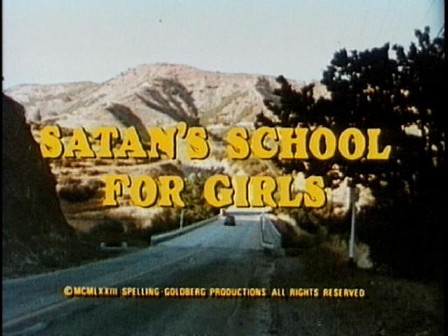
Shelly Winters, you shall be missed
 Oscar winner Shelley Winters Dies at age 85.
Oscar winner Shelley Winters Dies at age 85.Shelley Winters, who once described her life as a "rocky road out of the Brooklyn ghetto to one New York apartment, two Oscars, three California houses, four hit plays, five Impressionist paintings, six mink coats and 99 films," died yesterday. She was 83, although some sources say she was 85. ...
Tough-talking and oozing sex appeal, Ms. Winters was blowzy, vulgar and often pathetically vulnerable in her early films. In movie after movie, she played working-class women who were violently discarded by men who had used them.
When her gullible waitress couldn't lead the hymn-singing preacher to a cache of stolen money in The Night of the Hunter (1955), he slit her throat.
As a rich man's poor mistress in The Great Gatsby (1949), she was casually run over by her lover's wife.
In Stanley Kubrick's Lolita (1962), James Mason married her to get close to her young daughter; when she finds this out she blindly runs in front of a car and is killed.
Even when she became the dominating force in many of her later movies, Ms. Winters often played vulnerable monsters. As Ma Barker in the 1970 cult classic Bloody Mama - in which she is first seen giving her four grown sons their Saturday-night baths - she was murderously maternal while brandishing a tommy gun.
Shrieking, shrewish, slutty or silly, Ms. Winters always seemed larger than life on screen. The critic Pauline Kael called her lovelorn culture-vulture Charlotte Haze in Lolita a "triumphant caricature, so overdone it recalls Blake's 'You never know what is enough until you know what is more than enough.' "
FilmLight is almost one year old! If we were a real child we'd probably be slightly jaundiced though still deeply loved by our family & friends. We would promise to do better, but we also don't want to lie.

Tonight I attended the opening of the
Berlin & Beyond film festival at the beautiful
Castro Theatre (next week: the
Roller Disco triple feature!) to see
Sophie Scholl: Final Days.
 Final Days
Final Days is a beautifully wrought film closely following four days in 1945 when three memebers of the White Roses, an anti-Hitler student movement in Munich, were caught distributing leaflets criticizing the Nazi party's control of Germany as well as Hitler's military strategies. After a 5 minute trial they were promptly executed (by guillotine!) The story has been pieced together by newly released Nazi documentation and letters written by Sophie Scholl's cellmates and is Germany's official
Academy Award submission for Best Foreign Film.

And Ingmar Bergman's
Virgin Spring is at long last available on dvd (Criterion Collection no less, snap). Maybe those of you with stronger stomaches can see it and tell me all about it.

















